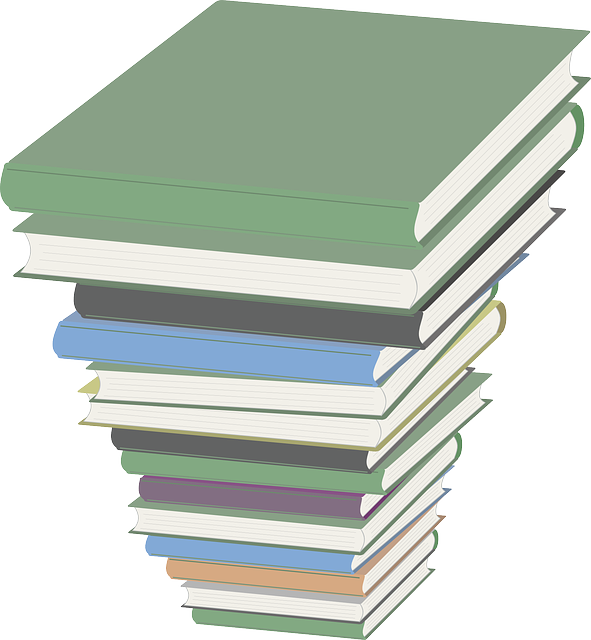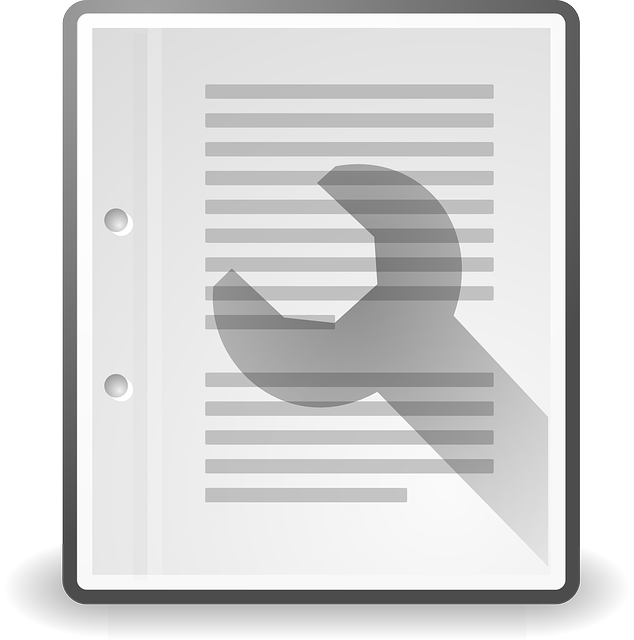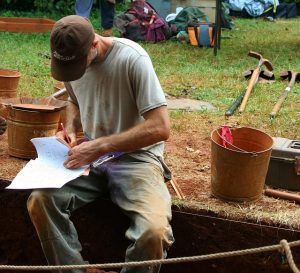In the competitive UK R&D sector, clear communication facilitated by professional translation services is vital for success. Accurate translations of scientific documents ensure seamless knowledge exchange and collaboration, avoiding legal issues and delays. Specialized linguists grasp technical terminology and local norms to adapt content for UK audiences, ensuring effective communication. Choosing experienced providers with a proven record guarantees document integrity while adhering to regulatory standards. Compliance with legal frameworks like MHRA and GDPR is crucial for industries like pharmaceuticals and technology. Case studies illustrate how these services enhance research accessibility and impact, fostering global partnerships. AI and MT technologies offer increased efficiency and accuracy, transforming the industry for expanding UK R&D teams.
Are you navigating the complex world of translating R&D documents for the UK market? Accurate translations are crucial for successful product launches, regulatory compliance, and market penetration. This comprehensive guide explores the critical aspects of handling research and development materials in English, from identifying common challenges to leveraging professional translation services. We’ll walk you through key considerations, cultural relevance, best practices, legal requirements, and inspiring case studies, empowering you to make informed decisions for your UK-bound R&D documents.
- Understanding the Importance of Accurate Translation for UK R&D Documents
- Common Challenges in Translating Research and Development Materials
- The Role of Professional Translation Services in Ensuring Quality and Consistency
- Key Considerations When Choosing a Translation Provider for Your R&D Documents
- How to Ensure Cultural Relevance and Local Adaptability in UK Market Translations
- Best Practices for Effective Communication in Technical Documentation
- Legal and Regulatory Requirements for Translated R&D Materials in the UK
- Case Studies: Successful Translation Projects for UK-Bound Research Outputs
- Future Trends and Innovations in R&D Translation Services
Understanding the Importance of Accurate Translation for UK R&D Documents

In the dynamic landscape of UK research and development (R&D), clear communication is key to success. When it comes to translating R&D documents, accuracy is paramount. A precise translation ensures that vital scientific data, experimental findings, and technological innovations are conveyed effectively across languages, facilitating seamless collaboration and knowledge exchange within the UK market and beyond.
Inaccurate translations can lead to misunderstandings, misinterpretations, and even legal complications. Therefore, enlisting professional translation services specialized in R&D documentation is crucial for researchers, startups, and established companies alike. These services employ linguists with expertise in scientific terminology, ensuring that technical concepts are translated accurately and coherently, thereby preserving the integrity of the original content.
Common Challenges in Translating Research and Development Materials

When translating research and development (R&D) documents for the UK market, companies often encounter several challenges due to the unique linguistic and cultural nuances of the region. Accurate translation services for UK R&D documents require a deep understanding of scientific terminology and regulatory requirements specific to the country. Misinterpretations or errors in these materials can lead to significant issues, including legal complications and product delays.
One of the primary challenges is ensuring technical precision while adapting content for UK audiences. Scientific and medical terms often have different conventions and meanings across languages. Translators must possess expertise in both the source and target languages to convey complex ideas accurately. Additionally, cultural context plays a vital role, as certain idiomatic expressions or references may not translate directly, requiring creative solutions to maintain meaning and effectiveness.
The Role of Professional Translation Services in Ensuring Quality and Consistency

When it comes to translating R&D documents for the UK market, professional translation services play a vital role in ensuring quality and consistency. With complex scientific and technical terminology, accurate translation is crucial to convey the right message and maintain regulatory compliance.
These services employ experienced linguists who specialize in the life sciences or technology sectors, enabling them to accurately interpret technical jargon and industry-specific terms. They also follow strict quality assurance protocols, including multiple rounds of review by both language experts and domain specialists, to guarantee that every document is flawless. This attention to detail ensures your R&D documents are not only translated but localized, adapting to the nuances and requirements of the UK market.
Key Considerations When Choosing a Translation Provider for Your R&D Documents

When selecting a translation provider for your UK market-bound R&D documents, several key considerations come into play. First and foremost, ensure the provider has extensive experience in handling scientific and technical content, as this requires a deep understanding of jargon and terminology specific to research and development.
Secondly, verify their proficiency in languages relevant to your target audience. For UK markets, accuracy and fluency in English are paramount. Additionally, look for providers with a proven track record in maintaining the integrity and clarity of technical documents, as any translation errors could have significant implications. Reputable agencies will often offer quality guarantees and employ rigorous quality control measures to ensure client satisfaction.
How to Ensure Cultural Relevance and Local Adaptability in UK Market Translations

When translating R&D documents for the UK market, ensuring cultural relevance and local adaptability is crucial. This involves more than just word-for-word translation; it’s about understanding the nuances of British English, cultural references, and legal/regulatory requirements specific to the region. Engaging professional translation services specializing in scientific and technical documentation can make all the difference. These experts have the knowledge and expertise to adapt your content so that it resonates with UK audiences, maintaining the integrity of your original research while adhering to local standards.
Local adaptability extends beyond language. It encompasses formatting, dates, measurements, and even terminology used within the specific industry or academic field. For instance, technical terms might require adaptation to align with British English usage or be replaced by more accessible alternatives for a broader audience. By prioritizing these aspects, you can ensure your translated R&D documents are not just accurate but also effectively communicated to UK stakeholders, facilitating better understanding and acceptance in the local market.
Best Practices for Effective Communication in Technical Documentation

Effective communication is paramount when it comes to technical documentation, especially in a diverse market like the UK. When translating R&D documents for this region, consider these best practices to ensure clarity and precision. First, engage professional translators with expertise in your industry; their technical knowledge ensures accurate terminology and complex ideas are conveyed appropriately.
Additionally, remember that context matters. Translators should understand the purpose of the document and its intended audience within the UK market. It’s crucial to maintain consistency in terminology and style across all materials for seamless comprehension. Moreover, utilizing memory translation tools can help, but human expertise remains vital to capture nuances and cultural sensitivities, ensuring your R&D documents resonate effectively with UK audiences.
Legal and Regulatory Requirements for Translated R&D Materials in the UK

When translating R&D documents for the UK market, understanding legal and regulatory requirements is paramount. The UK has stringent guidelines regarding the accuracy and compliance of technical translations, especially in sectors like pharmaceuticals, healthcare, and technology. Any translated document must meet the standards set by the relevant governing bodies to ensure product safety, efficacy, and legality.
Translation services for UK Research and Development Documents should factor in compliance with regulations such as the Medicines and Healthcare products Regulatory Agency (MHRA) guidelines for pharmaceutical translations or the General Data Protection Regulation (GDPR) for documents containing sensitive information. Professional translation companies employ linguists who are well-versed in these requirements, ensuring that your R&D materials not only convey accurate scientific information but also adhere to the legal framework of the UK market.
Case Studies: Successful Translation Projects for UK-Bound Research Outputs

When it comes to translating R&D documents for the UK market, success lies in understanding the nuances of both scientific content and regional language preferences. Case studies highlight several successful projects where translation services have been instrumental in making research outputs accessible and impactful. For instance, a leading pharmaceutical company faced the challenge of localizing clinical trial reports for rapid approval in the UK. The translation team not only ensured accurate scientific terminology but also adapted the tone to meet regulatory requirements, resulting in a seamless review process and faster market access.
Another notable example involves a tech startup that required the translation of its whitepapers and product specifications for potential investors and partners in the UK. By leveraging advanced machine translation tools and human expertise, the project delivered high-quality documents that maintained the original intent and technical precision. This allowed the startup to effectively communicate its innovative ideas to a UK audience, fostering partnerships and investment opportunities. These real-world applications underscore the significance of professional translation services in facilitating successful research dissemination within the UK market.
Future Trends and Innovations in R&D Translation Services

The future of R&D translation services is brimming with potential, driven by technological advancements and a growing globalized research landscape. Artificial Intelligence (AI) and Machine Translation (MT) are set to play a pivotal role in enhancing efficiency and accessibility. Advanced AI algorithms can now handle complex linguistic nuances, ensuring highly accurate translations for technical documents. This technology allows for faster turnaround times and cost-effectiveness, making it an attractive option for UK-based R&D teams looking to expand globally.
Moreover, the integration of machine learning (ML) into translation workflows enables continuous improvement. ML models can learn from vast datasets, including specialized R&D terminology, leading to more consistent and contextually appropriate translations. This innovation is particularly beneficial when dealing with niche research areas where industry-specific terminology is crucial for accurate communication. As the demand for international collaboration in R&D continues to surge, translation services will need to adapt and embrace these trends to meet the evolving needs of UK researchers on the global stage.
When navigating the complex landscape of research and development documentation, utilizing professional translation services is key to ensuring accuracy, quality, and cultural relevance. By selecting a reputable provider who understands the intricacies of technical communication, you can seamlessly translate your R&D documents for the UK market, fostering effective information exchange and facilitating innovative advancements. In today’s globalized world, this strategic step is vital for reaching a wider audience and unlocking new opportunities.
